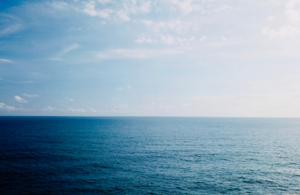MMO response to actions by Greenpeace in South West Deeps
MMO has a statutory responsibility to protect our precious marine environment. We had already announced a programme of work to manage all fishing activities in England’s 40 offshore marine protected areas (MPAs) by the end of 2024, after new powers were granted in 2021. This programme includes South West Deeps (East) Marine Conservation Zone.

Update 08 September 2022
We were informed by Greenpeace yesterday (Wed 7 Sept) that it intends to collect more boulders and drop them into the sea at South West Deeps in what it refers to as a peaceful protest to prevent “destructive bottom trawling”.
This would mean further boulder drops into the marine space without the required marine licences.
We are extremely disappointed that Greenpeace intends to continue with its actions. Greenpeace is aware of the work that is being undertaken by MMO to protect these sites and the process that must be followed, and Greenpeace was left in no doubt following the judicial comments in the previous court proceedings, that it is expected to comply with the marine licensing regime.
We will continue to monitor and investigate as appropriate.
Since the programme started, MMO has already delivered a range of management measures in four offshore sites, including Dogger Bank SAC which at 12,331 sq. kilometres, is the largest MPA in England protecting seabed habitat. We also recently published a call for evidence, and sought views on MMO’s draft assessments of the impacts of bottom-towed fishing gear on a further 13 marine protected areas (MPAs) in order to identify appropriate long-term site protection.
MMO will continue to undertake full evidence-based assessments in consultation with all stakeholders to establish robust legislative measures to protect our important marine habitats. These will be based on the best available scientific evidence and will be accompanied by a thorough analysis of how such measures will affect fishing activity. We are implementing this work in a phased, risk-based manner ensuring that those MPAs that are most vulnerable to damage from fishing activities are assessed and managed first. We will also engage with all users and stakeholders, including interested environmental NGOs with whom we have established a forum to engage and update on progress. This includes Greenpeace.
Therefore, as England’s marine regulator, we are very disappointed that Greenpeace has chosen to take this action to drop boulders to form a barrier as we don’t believe it is justified or will help protect our marine environment.
It is also a requirement under the Marine and Coastal Access Act that any deposit of construction below high water is required to have a Marine Licence. Greenpeace do not hold, nor have they applied for one and as such their activity is potentially illegal.
As unlicensed activity has now taken place today (Thurs 1 Sept), MMO has launched a formal investigation in accordance with its regulatory function around marine licensing enforcement and is gathering evidence before considering its next response.
South West Deeps (East) is a large offshore marine conservation zone (MCZ) covering an area of 4,676 km2. It is located in the Western Channel and Celtic Sea where it’s closest point to land lies 190 km south-west of Cornwall. The depth of the water reaches 750m in some places and the area is home to a wide variety of important species including flatfish such as sole and plaice on the seabed surface, and species of clam, cockles and marine worms. The site also provides habitats and prey species for a range of commercial fish species, as well as marine birds and mammals.
The location is part of a third round of the MMO’s work to manage fishing in our offshore MPAs, and the MMO is currently gathering and analysing evidence to inform our management decisions for this site. Any proposed management for this site will be subject to public consultation, and all necessary fisheries management measures for all English offshore MPAs will be in place by the end of 2024.
The fishing vessels that work in these waters are predominantly French and Spanish with only two UK static netters which are vessels that deploy a static wall of netting (either trammel or gill net) in a fixed position. From available records, the type of fishing undertaken is a mix of gill netting, long lining, bottom trawling, pelagic trawling and fly seining. Therefore, it is our view that to drop boulders in this location will have minimal impact.
The MMO remains open to discussions with Greenpeace to ensure we can achieve our joint goal of marine nature recovery. In fact, MMO met with a range of MPA stakeholders, including Greenpeace, just last week to discuss our work to manage fishing in MPAs.
To assist vessels’ safe navigation, MMO understands that there are 18 boulders in the following locations, based on communication from Greenpeace and observation by MMO officers.
The coordinates of each boulder provided by Greenpeace are:
-
N 48-59.1284 W 008-46.7469
-
N 48-58.9120 W 008-47.9099
-
N 48-57.8316 W 008-47.3914
-
N 48-57.6745 W 008-48.8258
-
N 48-56.9305 W 008-47.9453
-
N 48-56.7746 W 008-49.3467
-
N 48-55.7351 W 008-48.7217
-
N 48-55.8803 W 008-49.9904
-
N 48-55.0817 W 008-49.1273
-
N 48-54.9064 W 008-50.8714
-
N 48-54.2681 W 008-49.7659
-
N 48-54.0387 W 008-51.2680
-
N 48-53.2421 W 008-50.4760
-
N 48-53.1244 W 008-51.8232
-
N 48-52.2789 W 008-51.3377
-
N 48-52.1629 W 008-52.6250
-
N 48-50.8866 W 008-53.5042
-
N 48-51.1433 W 008-51.9922
Updates to this page
-
08 September update
-
Updated to include coordinates of boulder locations, based on communication from Greenpeace.
-
First published.